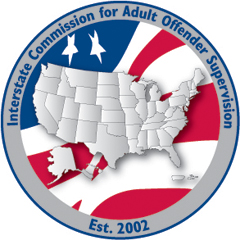Probation & Parole participates in and actively supports several treatment courts across the state of Idaho. District personnel are dedicated specifically to investigation, supervision and assessment of individuals involved in a treatment court such as drug court or mental health court. Defendants have the opportunity to have their criminal charge withheld and then dismissed if they successfully complete treatment and comply with strict supervision requirements with ongoing court hearings involving a team of professionals from different agencies.
Drug Courts
Drug courts hear criminal cases against nonviolent, substance abusing clients who appear likely to benefit from drug treatment instead of probation or incarceration.
When a client is enrolled in a drug court, they must attend regular counseling sessions and educational classes, complete reading and writing assignments and submit to frequent drug tests. An IDOC Probation & Parole Officer monitors the client's progress and reports the findings to the court. The monitoring includes home visits, employment checks and phone calls. The judge closely reviews the officer's findings with the client during their regular court appearances.
Drug courts use a system of escalating sanctions for clients who fail to meet expectations. The sanctions include additional educational assignments, community service and even jail time. Conversely, as a client demonstrates compliance, treatment and supervision is lessened. Eventually, after having been clean for a significant period of time, the client graduates from the program and is released from supervision.
There are 21 drug courts in Idaho. Most drug court programs last 12 to 24 months.
Mental Health Courts
Mental Health Courts hear criminal cases against nonviolent clients who are mentally ill and have a drug or alcohol problem. The courts’ goal is to treat the underlying mental illness that is causing criminal behavior.
IDOC Probation & Parole Officers supervise mental health court clients to make sure they are following their treatment plan and obeying the law. The supervision typically includes home and office visits, employment checks and random drug tests. Clients are also expected to pay all fines, fees and restitution, and meet with mental healthcare providers and other treatment professionals as required by the court.
The Probation & Parole Officers are part of a team that includes mental health and substance abuse treatment specialists, Idaho Department of Health and Welfare caseworkers and mental health court staff members. All clients are required to make frequent court appearances to review their progress with a judge.
There are 10 mental health courts in Idaho. Clients who wish to have their case heard before one of them must submit an application and be accepted by the mental health court team. Then, after the client pleads guilty, they are sentenced to successfully graduating from the program. Failure to comply with the court’s requirements during any stage can result in fines, community service, additional education and treatment and even incarceration.
The essential elements of a mental health court are described in a Bureau of Justice Assistance publication titled Improving Responses to People with Mental Illness.






